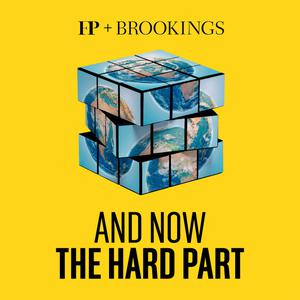
And Now The Hard Part
Foreign Policy
Each week we look at one of the world’s toughest problems and suggest a way forward—all in under 30 minutes.
- 31 minutes 56 secondsHow to Reverse the Global Drift Toward Authoritarianism
Autocrats and populists are on the march around the world, including in European countries that were seen until recently as firmly in the democratic camp. The phenomenon, coupled with the deepening of authoritarian tendencies in already-repressive Russia and China, has prompted worries that liberalism itself may be waning.
This week on And Now the Hard Part, we trace the roots of the problem and talk about how to fix it.
“As we emerged from the Cold War, I think there was a legitimate reason for us to believe that … democracy would be institutionalized around the globe,” said John Allen, a retired four-star general and the president of the Brookings Institution.
“[But] in the last few years, we have seen a real slip … in the context of both the attractiveness of democracy and the endurance of democratic institutions.”
Allen is our guest on the podcast this week.
Learn more about your ad choices. Visit megaphone.fm/adchoices
11 November 2019, 11:00 am - 24 minutes 36 secondsHow to Boost the Economies of Africa
Despite recent improvements in the economies of many African countries, the continent as a whole continues to underperform when it comes to trade.
Africa represents only about 2.4 percent of total global exports. Internal trade is also low—some African countries trade more with Europe or Asia than with other nations on the continent.
This week on And Now the Hard Part, we trace the roots of the problem and talk about how to fix it.
“The limitations in traffic and trade have effects on industrial development, poverty levels, job creation, especially for the youth population,” says Landry Signé, a Brookings fellow and our guest on the podcast this week.
Learn more about your ad choices. Visit megaphone.fm/adchoices
4 November 2019, 11:00 am - 29 minutes 23 secondsHow to Manage North Korea
For decades, the United States has been trying to prevent North Korea from developing nuclear weapons, using both engagement and sanctions at different times (and sometimes at the same time). President Donald Trump’s approach has been to alternate between threats and insults and embracing and flattering North Korean leader Kim Jong Un. None of it has worked. Analysts now predict that by next year North Korea could have as many as 100 nuclear bombs.
This week on And Now the Hard Part, we trace the roots of the problem and talk about how to fix it.
“North Korea’s … a disruptive entity in East Asia, where we have most of the world’s economic growth. And we have leading that country a 35-year-old who is paranoid, power-obsessed, and has nuclear weapons,” said Jung H. Pak, a senior fellow at the Brookings Institution and a former CIA analyst.
Learn more about your ad choices. Visit megaphone.fm/adchoices
28 October 2019, 10:00 am - 32 minutes 27 secondsHow to Repair Venezuela’s Shattered Economy
Venezuela was once the envy of Latin America, an oil-rich country whose people enjoyed both democracy and prosperity. But in recent years, it has become the region’s basket case, with a repressive government, soaring hyperinflation, a 60 percent drop in GDP, and deadly shortages of food, medicine, and other essentials.
This week on And Now the Hard Part, we trace the roots of the problem and talk about how to fix it.
“Venezuela is probably home right now to the largest humanitarian crisis that this hemisphere has seen, perhaps the world, in modern history,” said Dany Bahar, a fellow at the Brookings Institution.
“This is a man-made crisis. It was manufactured by those in power for the past 20 years as a result of many things including, perhaps, [Venezuela] being one of the most distorted economies in the world.”
Learn more about your ad choices. Visit megaphone.fm/adchoices
21 October 2019, 10:00 am - 28 minutes 54 secondsHow to Heal the NATO Alliance
The alliance between the United States and rest of NATO has begun fraying in recent years—at the very moment when the threat posed by both Russia and China is surging. NATO was founded in 1949 on a promise of mutual self-defense. But U.S. President Donald Trump has raised new questions about America’s commitment to that promise, heightening fears across the alliance.
This week on And Now the Hard Part, we trace the roots of the problem and talk about how to fix it.
“My concern is simply that if we ever had a catastrophic moment or a security crisis, do the rest of the members of NATO feel secure enough in the way the United States supports them that they would support us if we needed them?” said the Brookings Institution scholar Victoria Nuland, a former assistant secretary of state and the guest on our show this week.
“It depends on how long this seeding of doubt about our own reliability continues.”
Learn more about your ad choices. Visit megaphone.fm/adchoices
14 October 2019, 10:00 am - 25 minutes 25 secondsFixing the U.S. Relationship With China
Relations between the United States and China have reached their lowest point since ties were first established 40 years ago, with the two countries sparring over trade, technology, and Beijing’s military action in the South and East China Seas. U.S. President Donald Trump’s policies have brought the tensions to a head—but the problems predate his term in office.
This week on And Now the Hard Part, we trace the roots of the crisis and talk about how to fix it.
“Areas of cooperation have essentially evaporated, channels of communication between Washington and Beijing have largely atrophied below the presidential level, and areas of competition have intensified,” says Ryan Hass, a fellow at the Brookings Institution and our guest this week.
“It’s costly, it’s dangerous, and it’s self-isolating.”
Learn more about your ad choices. Visit megaphone.fm/adchoices
7 October 2019, 10:00 am - 29 minutes 27 secondsFighting Russian Disinformation
Russia’s attempt to swing the 2016 U.S. election campaign for Donald Trump was just one of dozens of such operations Moscow has waged in the West in recent years. Assessing the specific impact of each act of political interference is exceedingly difficult. But analysts increasingly point to a general trend that serves Russia's interest: The operations are eroding Western voters' overall trust in democracy.
This week on And Now the Hard Part, we trace the roots of Moscow's political interference and talk about how countries can fight back.
“You have to send the message to those that try to undermine our democracies that there will be consequences for their actions,” says Alina Polyakova, the director of the Global Project on Democracy and Emerging Technology at the Brookings Institution and our guest this week.
Listen to the episode on this page or subscribe and download wherever you get your podcasts.
Learn more about your ad choices. Visit megaphone.fm/adchoices
30 September 2019, 1:25 pm - 31 minutes 27 secondsResetting the U.S. Relationship with Saudi Arabia
The U.S. relationship with Saudi Arabia has rested for decades on an unwritten agreement that benefited both sides: The United States provides security and access to global markets, while the Saudis ensure that the oil keeps flowing. But the rise of the United States as a leading energy producer and the increasing recklessness of Saudi Arabia under the leadership of Crown Prince Mohammed bin Salman are forcing a rethinking of that contract.
In the first episode of our new podcast, And Now the Hard Part, we tackle the question: How can Washington reset its relationship with Riyadh?
And Now the Hard Part is a partnership between Foreign Policy and the Brookings Institution. Each week, we look at one vexing problem in the world, trace its origin, and then offer a way forward. Our host is Foreign Policy’s editor in chief, Jonathan Tepperman, and the guests are some of the smartest analysts around—all scholars at the Brookings Institution.
This week Jonathan sits down with Bruce Riedel, a senior fellow at Brookings and and a former CIA analyst.
Learn more about your ad choices. Visit megaphone.fm/adchoices
23 September 2019, 3:58 pm - 2 minutes 18 secondsTrailer: Introducing And Now The Hard Part
The world is a particularly confusing and daunting place these days: Russian bots, North Korean nukes, trade wars and climate emergencies. To understand it better, Foreign Policy and the Brookings Institution are teaming up for an 8-part podcast series. On each episode, host Jonathan Tepperman and a guest from Brookings discuss one of the world’s most vexing problems and trace its origins. And then, the hard part: Tepperman asks the guest to focus on plausible, actionable ways forward.
Jonathan Tepperman, Foreign Policy’s editor in chief, hosts the podcast. The guests are some of the smartest and most experienced analysts around—all scholars from the Brookings Institution, including former government and intelligence officials.
The first episode of And Now The Hard Part drops later this month. Subscribe on Apple Podcasts, Google Podcasts, Spotify, or wherever you listen to podcasts.
Learn more about your ad choices. Visit megaphone.fm/adchoices
10 September 2019, 1:51 pm - More Episodes? Get the App
Your feedback is valuable to us. Should you encounter any bugs, glitches, lack of functionality or other problems, please email us on [email protected] or join Moon.FM Telegram Group where you can talk directly to the dev team who are happy to answer any queries.
 Foreign Policy Live
Foreign Policy Live
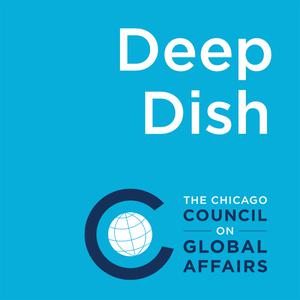 Deep Dish on Global Affairs
Deep Dish on Global Affairs
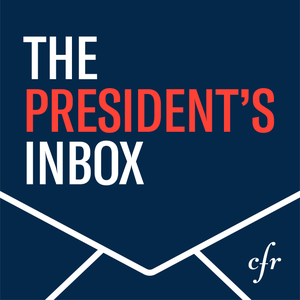 The President’s Inbox
The President’s Inbox
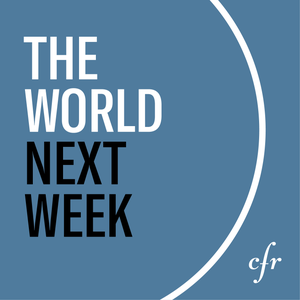 The World Next Week
The World Next Week
 Global Dispatches -- World News That Matters
Global Dispatches -- World News That Matters
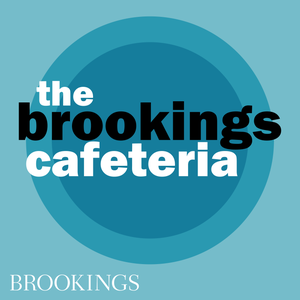 The Brookings Cafeteria
The Brookings Cafeteria